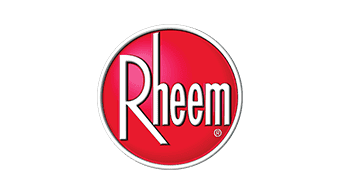
5 Things NOT To Put Down Your Sink
Most people tend to treat their kitchen sink like a trash can, letting anything that ends up down the drain simply get washed away, never to be seen again. No harm, no foul, right?
Or so they thought.
It’s not until we have an almighty blockage in our kitchen sink drain that all the bits we thought were harmless now come back to bite us. Drains are a delicate and pivotal part of our home’s plumbing system, and without them, we’d be lost. This is why it’s best to take care of them and not flush just anything down there.
So, here are 5 things NOT to put down your sink.
1. Food Waste
It’s best to just come out and say it, the reason why a lot of the wrong stuff goes down our drains is because of laziness.
When you wash dishes, it’s always easier to just brush off the leftovers from the plate down the drain. We’ve all done it. Most drains have a catch that catches the big bits that you can easily and safely dispose of in a bin. However, the bits that don’t get caught can still cause a problem. The most common perpetrators that can wreak havoc on your drains are pasta, rice, crushed egg shells and bones among other things. Pasta and rice in particular because they absorb liquid and begin to swell in your drains, forming a sticky matter that blocks your drains.
Excess Flour
Also bad news for your kitchen sink, and likely to clog pipes with ease, is disposing of excess flour down the drain. Like many other food scraps, people tend to scrape excess flour down the hole where it forms a sticky matter and results in an unwanted blockage.
Always remember to brush the leftovers into a bin before you wash up to avoid any problems with clogged drains.
2. Cooking Oil and Fats
Under no circumstances should you ever pour cooking oils down a drain, whether they’re cool, hot, solidified or other. Pouring hot oil down a kitchen drain will eventually lead to pipe damage. Pouring cool oil down your drain can cause it to solidify and result in a clogged pipe. If you’ve got leftover cooking oil in your frying pan, there are two things you can do to properly dispose of it. You can wait for it to cool down before wiping it up with an absorbent paper towel and throwing it in the bin. Or you can pour it into a container and wait for it to solidify, then throw it in the bin.
3. Stickers, Paper and Packaging
When you go to the sink to wash off a piece of fruit before you eat it, it seems natural to peel off the little sticker and let it wash down the drain with the water. However, this is not beneficial for your drains. If those little produce stickers build up over time, you’ll likely end up with a blockage. This is the same for any small packaging or bits of other paper products.
4. Coffee Grounds
Once upon a time, people thought that coffee grounds were good for your drains. They thought it made them smell fresh like a morning coffee. How wrong they were. When clumps of coffee grounds stick together they form an impenetrable barrier, causing you a bigger headache than caffeine withdrawals. If you have a compost bin, chuck your coffee grounds in there. It’s that easy.
5. Paint and Other Harmful Chemicals
This one is less because of the effect that paint in paint brushes has on your drains, and more because of the damage to the environment and public infrastructure. Water treatment plans can only do so much to remove chemicals from water, and substances like paints are incredibly damaging to the environment. If you have leftover paint to get rid of, there are companies who will recycle your paint safely. This also goes for heavy-duty household cleaning chemicals. You probably think they’ll do your drains a world of good, but their impact on the environment can’t be reversed, as well as their potential to be corrosive and damage your drains.
Bonus: Milk and Dairy Products
We’ve looked at 5 things you should never put down your drain. But as we’re feeling generous and helpful, here’s another.
Disposing of dairy products like milk, cheese, or yogurt to your kitchen sink may seem innocent enough. However, they can cause an unsavoury situation.
Milk, like other dairy products, is a highly polluting substance as it boasts a high oxygen demand. What this means for you is that when they break down in your home’s plumbing system, they can lead to increased bacterial growth and unpleasant odours. Moreover, these items can curdle and create a thick mess that clogs your pipes, leading to a clogged sink. The obvious solution is to safely dispose of your favourite dairy product in the rubbish bin.
Ensuring proper disposal units for dairy can save you from plumbing issues and contribute to better water supply management.
So What Can I Put Down My Kitchen Sink?
Overall, it’s pretty simple; solid objects, chemicals, oil-based liquids and other substances shouldn’t go down the drain. Drains are for water and soap; that’s about it. Just about anything else that you have will have a more suitable way to dispose of it and help you avoid a clogged sink. If you have no choice but to put other debris down your drain that could land you in hot water – in the truest sense of the word – just make sure it’s a once-off and not a regular thing.
What If I Have a Garbage Disposal?
Garbage disposals are designed to handle certain types of food waste, but they are not a catch-all solution. Even with a garbage disposal unit, items like grease or oil, coffee grounds, and starchy foods that absorb water should never go down your kitchen sink as they can easily clog your household pipes. These substances can cause a blockage in your wastewater treatment pipes and put a strain on your grease trap.
It’s essential to use the garbage disposal wisely and continue to practise proper disposal methods by using rubbish bins for leftover food, and proper disposal units for items that don’t belong down the drain. This will ensure that your sink and plumbing system continues to flow properly.
Should I Get a Compost Bin?
Definitely consider installing one as part of your kitchen setup, or even creating a compost heap in your backyard.
Composting is a fantastic way to properly dispose of organic waste that can otherwise clog drains. Things like like coffee grounds, fruit pits and food scraps. By diverting these from your kitchen sink, you’re reducing the load on water treatment plants and helping to maintain a clean water supply. Not only does it contribute to a healthier plumbing system, but it also enriches your garden by turning waste into valuable compost. For items you cannot compost, remember that the rubbish bin is still your best friend for ensuring a blockage-free sink.
What Should I Do If I Suspect a Blocked Drain?
If you suspect you have a blocked sink drain, it’s always important to get a professional to investigate. Sometimes they can be easily fixed. However, other instances might require the use of heavy-duty machinery such as drainage excavation to unclog the blockage. If you need an expert local plumber who can handle blocked drains, call Metropolitan Plumbing today.
Published: 2020-02-20

















